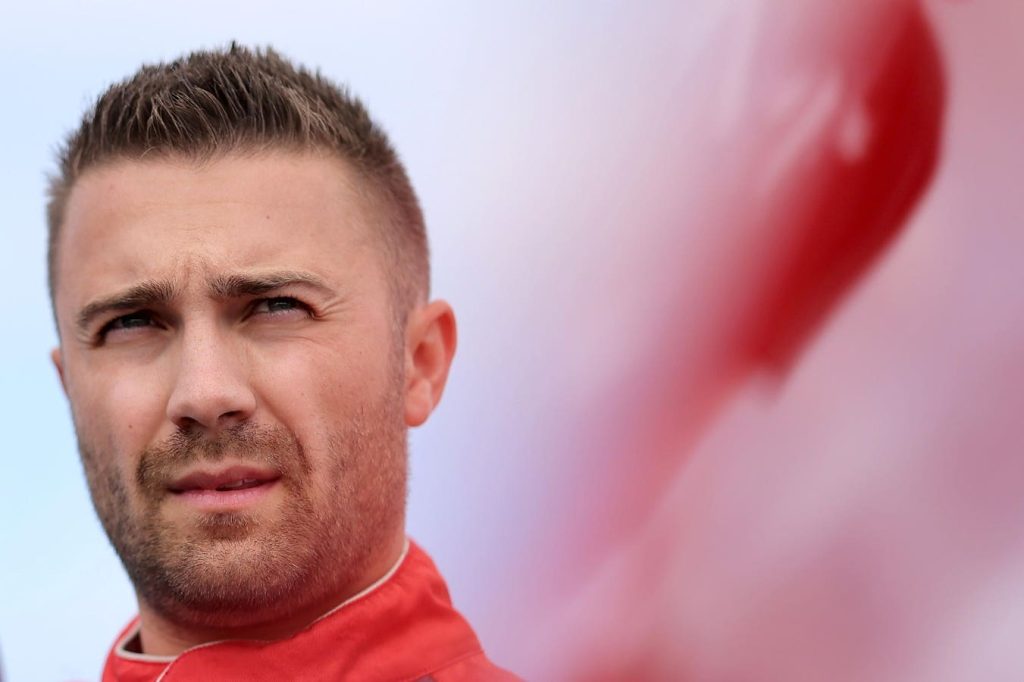NASCAR Champion Fined for Voting: A Clash of Civic Duty and Contractual Obligations
Ty Majeski, the newly crowned NASCAR Truck Series champion, found himself in a peculiar predicament just days before his triumphant victory at Phoenix Raceway. The 30-year-old Wisconsin native, fresh off securing the coveted title, was hit with a $12,500 fine by NASCAR for missing a mandatory media appearance. The reason for his absence? He was exercising his right to vote on Election Day. The incident sparked a debate about the balance between civic duty and contractual obligations, ultimately leaving NASCAR with a public relations debacle.
The controversy unfolded on November 5th, Election Day, which coincided with NASCAR’s Championship 4 Media Day in Charlotte, North Carolina. While Majeski was at his Wisconsin polling station, fulfilling his civic responsibility, NASCAR officials were preparing their weekly penalty report. Tucked amongst penalties for on-track infractions was a fine levied against Majeski for failing to attend the mandatory media event. The news quickly spread, drawing criticism from fans and commentators alike who viewed the penalty as an affront to democratic principles.
Majeski, upon arriving in Phoenix for the championship race, addressed the media, expressing his surprise and disappointment at the fine. He emphasized the importance of voting and defended his decision to prioritize his civic duty. He stated that he and his team, ThorSport Racing, had made a conscious decision to exercise his right to vote in person, emphasizing his desire to ensure his ballot was counted. He also noted the unprecedented nature of the penalty, particularly given the circumstances.
NASCAR’s initial response was muted, with off-the-record suggestions that the team hadn’t explicitly communicated that Majeski’s absence was due to voting. This bureaucratic wrangling contributed to the growing perception that NASCAR was prioritizing its media obligations over a fundamental right. Many within the racing community anticipated that the appeals process would rectify the situation, assuming that common sense would prevail.
However, the National Motorsports Appeals Panel upheld the $12,500 fine, citing Majeski’s breach of his contractual obligations to NASCAR. The panel argued that the Championship 4 Media Day was one of the most crucial media events of the entire season, emphasizing its importance to the sport and its sponsors. This decision effectively prioritized media appearances over civic engagement, a stance that further fueled the controversy and cemented the negative perception surrounding the incident.
The panel’s decision drew sharp criticism from various quarters, with many observers arguing that it sent a detrimental message about the importance of civic participation. The perceived inflexibility of NASCAR’s rules and the severity of the penalty, especially in light of the reason for Majeski’s absence, created a negative narrative that overshadowed his championship win. The incident highlighted a disconnect between the sport’s governing body and the broader societal values surrounding civic engagement.
While blame could be attributed to various parties – NASCAR for scheduling a crucial media event on Election Day, Majeski’s team for potentially not adequately communicating the reason for his absence, and the appeals panel for upholding the fine – the core issue remained the perceived prioritization of media obligations over voting. The optics of the situation were undeniably damaging for NASCAR, portraying the organization as out of touch and insensitive to the importance of civic participation.
The controversy surrounding Majeski’s fine cast a shadow over what should have been a purely celebratory occasion. His championship win, a remarkable achievement in itself, became intertwined with the voting debacle, creating a bizarre footnote in his career. While Majeski ultimately accepted the penalty and chose not to pursue further appeals, the incident served as a stark reminder of the potential conflicts between professional obligations and civic duties.
In the aftermath of the controversy, NASCAR has faced calls for greater flexibility and sensitivity in its scheduling and enforcement of rules, particularly when it comes to civic responsibilities. The incident highlighted the need for clearer communication between teams, drivers, and the sanctioning body to avoid similar situations in the future. Majeski’s experience serves as a cautionary tale, illustrating the potential consequences of even seemingly minor contractual breaches, particularly when they intersect with fundamental civic rights.
This incident has left NASCAR grappling with the fallout, facing criticism for its handling of the situation and the message it inadvertently sent about the importance of voting. The case of Ty Majeski, a NASCAR champion fined for exercising his right to vote, remains a blemish on the sport, raising questions about its priorities and its relationship with the broader societal values it represents. The incident serves as a stark reminder that even in the high-stakes world of professional sports, civic duties should not be treated lightly, and organizations must strive to balance contractual obligations with the fundamental rights of their participants.


